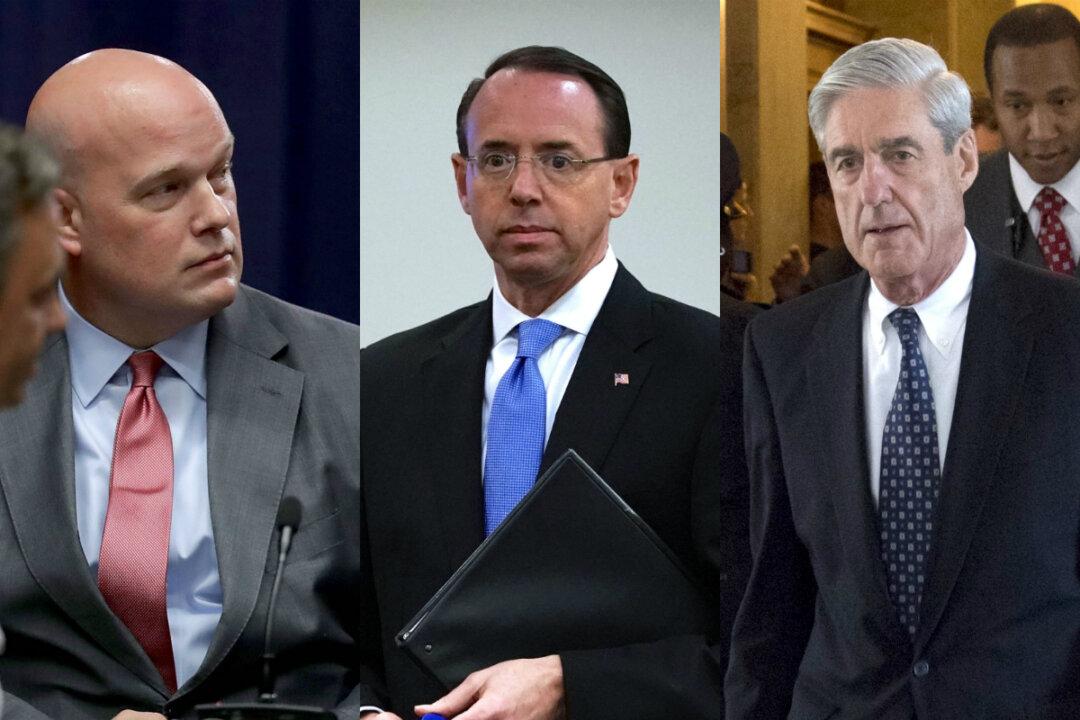News Analysis
Attorney General Jeff Sessions resigned on Nov. 7, at President Donald Trump’s request, and was replaced on an acting basis by Matthew G. Whitaker, who had been Sessions’ chief of staff.

Attorney General Jeff Sessions resigned on Nov. 7, at President Donald Trump’s request, and was replaced on an acting basis by Matthew G. Whitaker, who had been Sessions’ chief of staff.